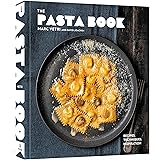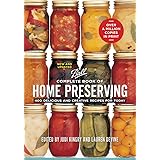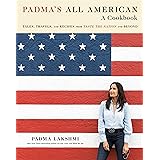Many health-conscious individuals grapple with a common dietary dilemma: should you soak nuts before consumption? Dr. Pal, a distinguished gastroenterologist, addresses this pertinent question in the accompanying video, shedding light on the science behind phytic acid and its impact on nutrient absorption. This article delves deeper into the expert insights presented, expanding on why the simple act of soaking nuts can significantly enhance their nutritional bioavailability.
Decoding Phytic Acid: The Anti-Nutrient in Raw Nuts
Raw nuts, alongside seeds, legumes, and grains, naturally contain phytic acid, also known as phytate. This compound serves a crucial biological role for the plant. Essentially, phytic acid acts as a protective mechanism, safeguarding the seed’s vital nutrients until optimal conditions for germination arise.
From a human dietary perspective, however, phytic acid is often classified as an anti-nutrient. It possesses a strong chelating property, meaning it readily binds to essential minerals such as zinc, iron, calcium, and magnesium. This binding action forms insoluble complexes, significantly impairing their absorption in the digestive tract. Imagine if your body could only access a fraction of the nutrients you consumed; phytic acid contributes to just such a scenario.
The Impact on Micronutrient Absorption and Gut Health
While the body can adapt to some level of phytic acid intake, consistently high levels may lead to suboptimal absorption of critical micronutrients over time. This is particularly concerning for individuals with pre-existing digestive issues or those on restrictive diets. A slight impairment in mineral absorption, as highlighted by Dr. Pal, can accumulate to noticeable deficiencies, affecting overall health and well-being.
Beyond mineral chelation, phytic acid can also inhibit certain digestive enzymes, including amylase, trypsin, and pepsin. These enzymes are vital for breaking down starches, proteins, and fats. Reduced enzyme activity can lead to digestive discomfort, bloating, and inefficient nutrient assimilation, placing additional strain on the gut.
The Science of Soaking Nuts: Enhancing Bioavailability
The traditional practice of soaking nuts, seeds, and grains isn’t merely anecdotal; it’s rooted in biochemical principles. Soaking initiates the germination process, triggering the plant’s own enzymatic activity to break down phytic acid. This process, termed phytate hydrolysis, releases the bound minerals, making them more accessible for absorption in the human digestive system.
As Dr. Pal illustrates with his “Jack in Titanic” analogy, phytic acid essentially “floats away” or, more accurately, is degraded and leached out. The video specifies that a simple overnight soak in a refrigerator can reduce phytic acid levels by approximately 10%. While 10% might seem modest at first glance, this reduction can be significant when considering daily intake and cumulative effects on mineral status.
Beyond Phytic Acid: Additional Benefits of Soaking
The advantages of soaking extend beyond just phytic acid reduction. Soaking can also help to neutralize other enzyme inhibitors present in raw nuts, further improving digestibility. This can lead to less gastrointestinal distress and a more comfortable eating experience for many.
Furthermore, the process can enhance the texture and flavor of nuts, making them plumper and sometimes sweeter. Imagine serving a bowl of perfectly tender, easily digestible almonds that not only taste better but also deliver more of their inherent goodness. Soaking also acts as a natural cleansing step, removing surface impurities.
A Practical Guide to Soaking Nuts
Integrating nut soaking into your routine doesn’t demand excessive effort, despite common misconceptions about time constraints. Here’s a straightforward method to maximize the benefits:
- Selection: Start with raw, unsalted nuts. Organic options are often preferred to minimize pesticide residue.
- Preparation: Place the desired quantity of nuts in a clean bowl or jar. Ensure there’s enough space for them to expand slightly.
- Soaking Solution: Cover the nuts with filtered water. The general ratio is about 2-3 cups of water per cup of nuts. For certain nuts, a pinch of salt can be added to help activate enzymes and draw out impurities, though it’s optional.
- Refrigeration: Place the bowl in the refrigerator. This cool environment inhibits bacterial growth while allowing the beneficial enzymatic processes to occur.
- Duration: Most nuts benefit from an 8-12 hour soak, or overnight. Larger nuts like walnuts or pecans might benefit from a slightly longer soak (up to 24 hours), while cashews require less (2-4 hours) to prevent them from becoming slimy.
- Rinsing: After soaking, drain the water thoroughly and rinse the nuts several times under cool, running water. This removes the leached phytic acid and other compounds.
- Drying/Dehydrating: At this stage, the nuts are “activated” and ready to eat. For longer storage or a crispier texture, dehydrate them in a low-temperature oven (around 150°F or 65°C) for several hours, or use a food dehydrator, until completely dry. This prevents mold and preserves their enhanced nutritional profile.
Properly dried, soaked nuts can be stored in an airtight container in the refrigerator for up to a week, or longer in the freezer.
Nuts: An Essential Source of Fatty Acids, Soaked or Unsoaked
Dr. Pal rightly emphasizes that nuts, even unsoaked, remain an incredibly valuable dietary component. They are a powerhouse of essential fatty acids, particularly omega-3s and omega-6s, which are critical for brain health, reducing inflammation, and maintaining cardiovascular function. Moreover, nuts offer a rich profile of protein, fiber, antioxidants, and a spectrum of vitamins and minerals.
The decision to soak nuts ultimately comes down to an individual’s specific health goals, digestive sensitivity, and lifestyle. If time is a constraint, consuming raw nuts in moderation is still vastly superior to many processed snack alternatives. However, for those seeking to extract the maximum benefit and optimize nutrient absorption, the simple practice of soaking nuts represents a significant step forward in dietary optimization and gut health management.











